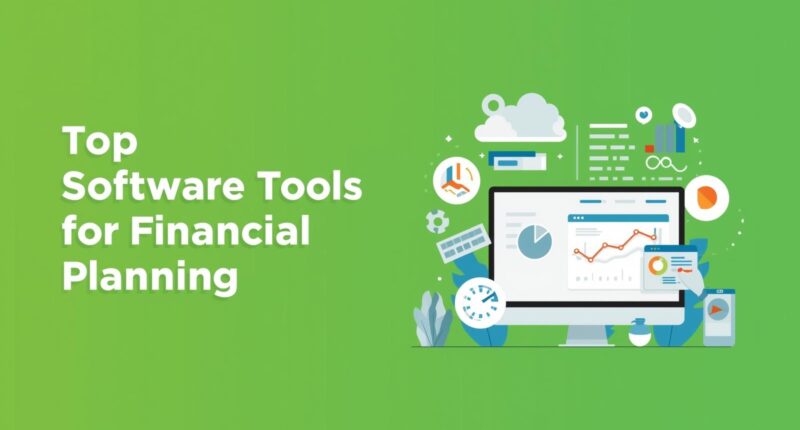Top Digital Tools for Smarter Financial Planning
In today’s fast-paced digital world, managing money effectively requires more than just spreadsheets and calculators. Innovative apps and online platforms are reshaping the way individuals save, budget, and invest. Understanding the top digital tools for smarter financial planning helps you make better financial decisions and stay ahead in 2025.
Why Top Digital Tools for Smarter Financial Planning Are Important
Financial planning is no longer limited to professionals. With the rise of fintech and digital solutions, everyone can access tools that:
-
Track spending in real time
-
Automate savings and investments
-
Provide personalized insights
-
Improve long-term financial stability
This makes the top digital tools for smarter financial planning essential for achieving financial goals.
Best Categories of Digital Tools for Financial Planning
1. Budgeting Apps
Apps like Mint and YNAB (You Need a Budget) help track income and expenses, ensuring you stay within limits. These are among the most popular top digital tools for smarter financial planning.
2. Investment Platforms
Platforms such as Robinhood, Wealthfront, and Betterment allow users to invest in stocks, ETFs, or use robo-advisors for automated portfolio management.
3. Expense Trackers
Expense-tracking tools categorize your spending, making it easier to cut back on unnecessary costs. PocketGuard and GoodBudget are great examples.
4. Retirement and Goal Planning Tools
Apps like Personal Capital or Fidelity Retirement Tools provide projections for long-term savings and retirement readiness.
5. Digital Wallets and Payment Solutions
Solutions like PayPal, Venmo, and Apple Pay simplify cashless transactions while offering expense monitoring features.
6. Cryptocurrency and Blockchain Tools
Crypto wallets like MetaMask and exchanges such as Coinbase allow investors to diversify and explore digital assets.
Table: Top Digital Tools for Smarter Financial Planning
| Category | Example Tools | Key Features | Benefit for Users |
|---|---|---|---|
| Budgeting Apps | Mint, YNAB | Real-time tracking, budget goals | Better expense control |
| Investment Platforms | Robinhood, Wealthfront, Betterment | Stock trading, robo-advisors | Easy investing and automation |
| Expense Trackers | PocketGuard, GoodBudget | Categorized spending, alerts | Smarter decision-making |
| Retirement Tools | Personal Capital, Fidelity Tools | Retirement projections, savings plans | Long-term security |
| Digital Wallets | PayPal, Venmo, Apple Pay | Quick payments, expense history | Convenient daily management |
| Crypto Tools | Coinbase, MetaMask | Buy/store cryptocurrencies | Diversification in finance planning |
This table highlights the top digital tools for smarter financial planning across different categories.
Benefits of Using Digital Tools for Financial Planning
-
Improved financial awareness through real-time tracking
-
Accessibility via mobile devices and online dashboards
-
Automation for savings, investing, and bill payments
-
Customization with AI-driven insights tailored to your needs
Challenges of Relying on Digital Tools
While these tools are powerful, there are challenges:
-
Cybersecurity risks – Protecting sensitive financial data is crucial
-
Over-reliance on apps – Users may neglect financial literacy basics
-
Subscription costs – Premium features can be expensive
-
Learning curve – Some tools require time to understand fully
Internal and External Resources
👉 For related fintech insights, read:
How Fintech Is Revolutionizing Personal Money Management
👉 For expert reviews, check:
NerdWallet’s Best Financial Tools
Final Thoughts on Top Digital Tools for Smarter Financial Planning
The rise of fintech has made it easier than ever to take charge of your financial future. The top digital tools for smarter financial planning provide solutions for budgeting, investing, retirement savings, and even cryptocurrency management.
While challenges like data security and app costs exist, the benefits far outweigh the risks. By using the right mix of tools, you can gain greater control, make informed financial decisions, and achieve your long-term goals with confidence.
In 2025 and beyond, digital financial tools will no longer be optional—they will be essential.









